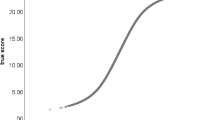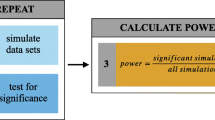Abstract
The concepts of indicator, social indicator, and life quality indicator are defined and exemplified. An indicator is characterized as an observable variable assumed to point to, or estimate, some other (usually unobservable) variable. It is, then, a symptom of something else. An indicator-indicated relation can be functional or it can consist in statistical correlation. It is a corrigible hypothesis, not an arbitrary definition. As such it is best justified when incorporated into a theory, e.g. a mathematical model. A social indicator is of course an indicator belonging to some sociological context. Finally, a quality of life indicator is one that allows one to estimate degrees of well-being. Some of the problems posed by this definition are discussed. The upshot of the discussion is that a better understanding and assessment of the quality of life calls for more intense theoretical and methodological work rather than an increase in the amount of social and environmental statistics. Here as elsewhere data without ideas are sterile when not misleading.
Similar content being viewed by others
Bibliography
Alcock, N.: 1975, Personal communication concerning Statistics Canada.
Andrews, F. M. and Whitney, S. B.: 1974, ‘Developing Measures of Perceived Life Quality: Results from Several National Surveys’, Social Ind. Res. 1, 1–26.
Bunge, M.: 1967, Scientific Research, two volumes, Springer-Verlag, New York.
Bunge, M.: 1973, ‘On Confusing ‘Measure’ with ‘Measurement’ in the Methodology of Behavioral Science’, in M.Bunge (ed.), The Methodological Unity of Science, D. Reidel, Dordrecht-Boston, pp. 105–122.
Bunge, M.: 1974a, ‘The Methodology of Development Indicators’, UNESCO Methods and Analysis Division, Department of Social Sciences, Paris.
Bunge, M.: 1974b, ‘The Concept of Social Structure’, in W.Leinfellner and E.Köhler (eds.), Developments in the Methodology of Social Science, D. Reidel, Dordrecht-Boston, pp. 175–215.
Bunge, M.: 1975, ‘Is Science Value-Free and Morally Neutral?’, Forthcoming in the Proceedings of the 22nd Pugwash Conference.
Bunge, M. and Garcia Sucre, M.: 1975, ‘Social Differentiation and Cohesion’, Forthcoming.
Carter, N. A. M. (ed.): 1972, Social Indicators: Proceedings of a Seminar, Canadian Council of Social Development, Ottawa.
Galtung, J.: 1974, ‘World Indicators’, Chair in Conflict and Peace Research, University of Oslo, Oslo.
Galtung, J. et al.: 1974, ‘Measuring World Development’, Chair in Conflict and Peace Research, University of Oslo, Oslo.
Inhaber, H.: 1974, ‘Environmental Quality: Outline for a National Index for Canada’, Science 186, 789–805.
Land, K.: 1975, ‘Theories, Models, and Indicators of Social Change’, International Social Science Journal (January).
Merriam, I. C.: 1968, ‘Welfare and Its Measurement’, in E. B.Sheldon and W. E.Moore (eds.), Indicators of Social Change: Concepts and Measurements, Russell Sage Foundation, New York, pp. 721–804.
Michalos, A.: 1974, ‘Strategies for Reducing Information Overload in Social Reports’, Social Ind. Res. 1, 107–131.
Mukherjee, R.: 1974, ‘On the Construction of Social Indicators’, UNESCO Methods and Analysis Division, Department of Social Sciences, Paris.
Sheldon, E. B. and Land, K. C.: 1972, ‘Social Reporting for the 1970's: A Review and Programmatic Statement’, Policy Sciences 3, 137–151.
Sheldon, E. B. and Moore, W. E. (eds.): 1968, Indicators of Social Change: Concepts and Measurements, Russell Sage Foundation, New York.
UNESCO: 1973, Programme on Man and the Biosphere, Final report on project 13, Paris.
U.S. Office of Management and Budget: 1974, Social Indicators, 1973, U.S. Government Printing Office, Washington.
Van Dusen, R. A. (ed.): 1974, Social Indicators, 1973, A Review Symposium, Social Science Research Council, Washington.
Author information
Authors and Affiliations
Rights and permissions
About this article
Cite this article
Bunge, M. What is a quality of life indicator?. Soc Indic Res 2, 65–79 (1975). https://doi.org/10.1007/BF00300471
Issue Date:
DOI: https://doi.org/10.1007/BF00300471




